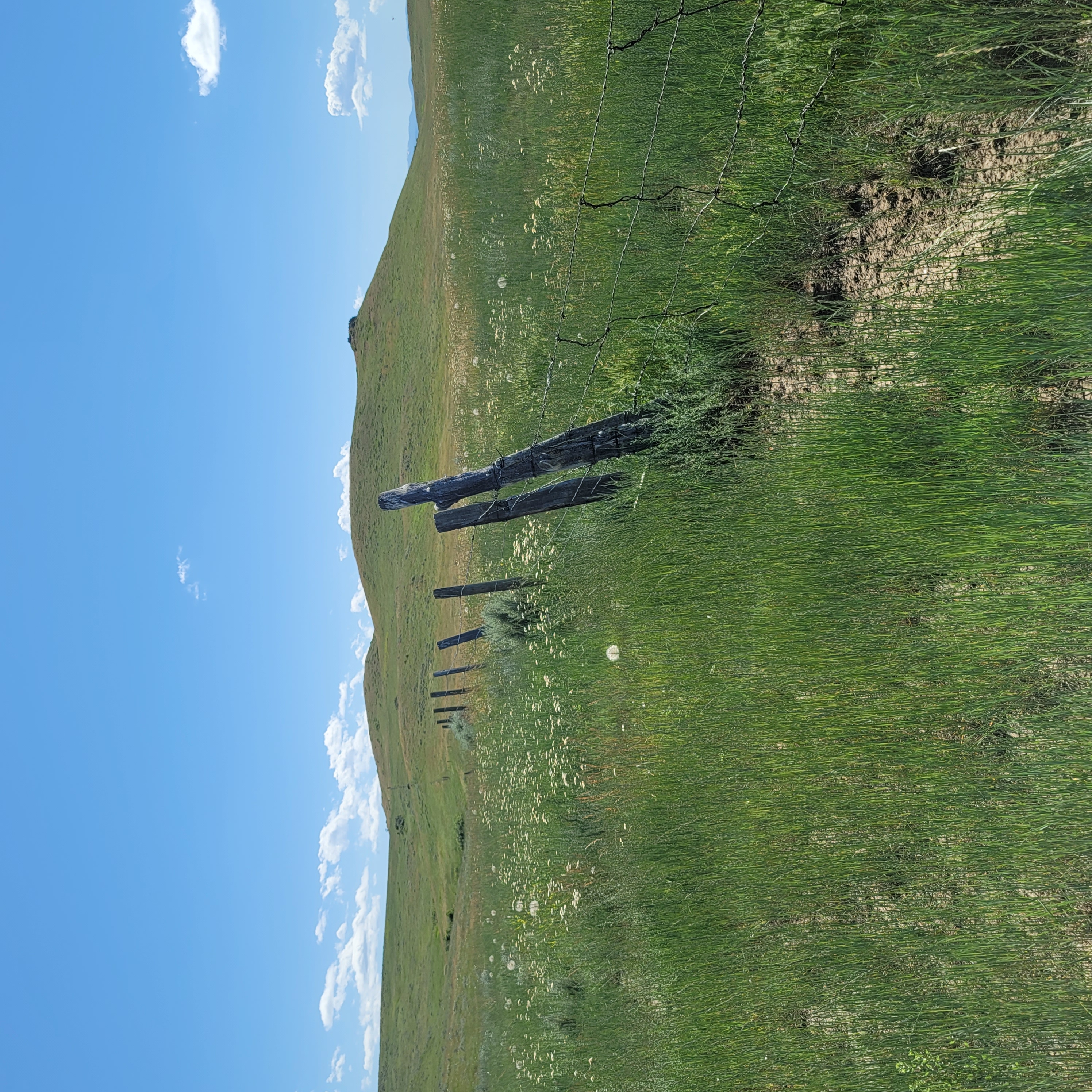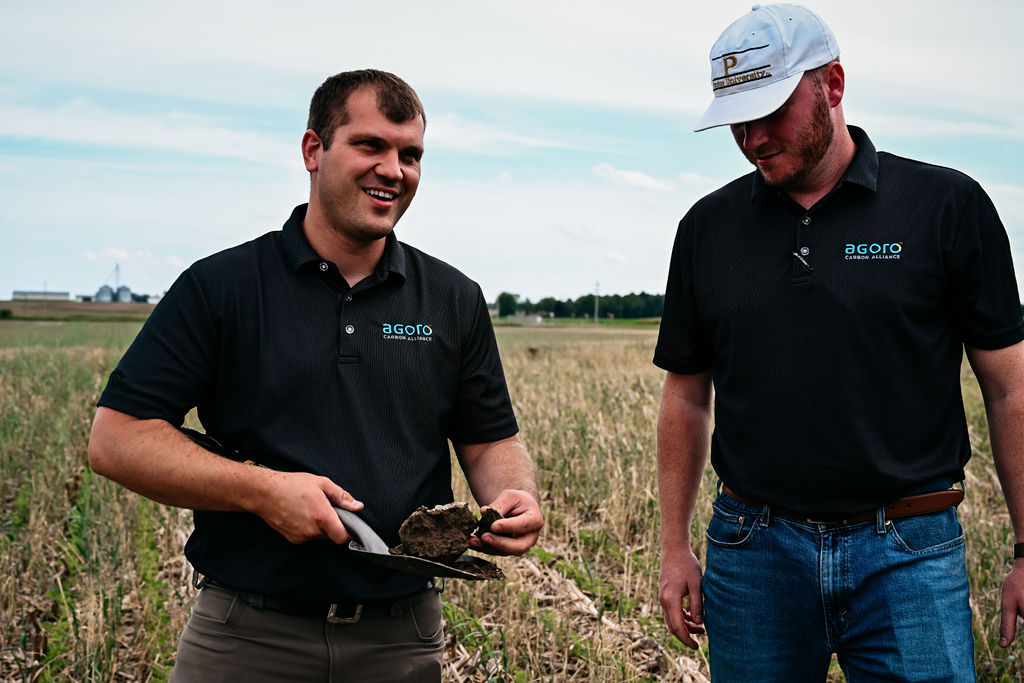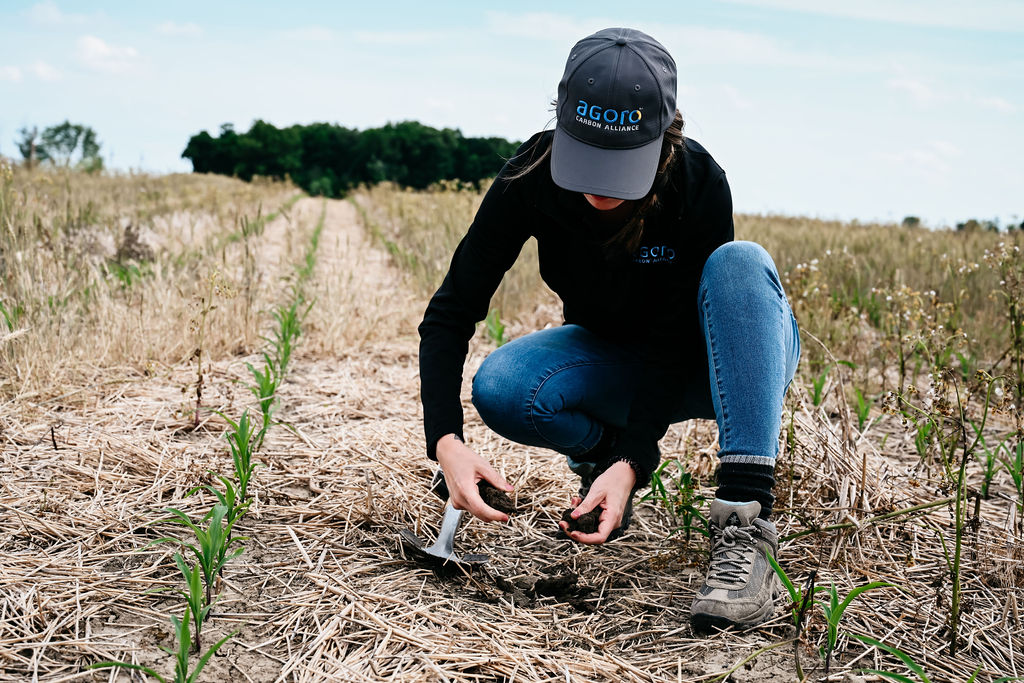Dylan Lubbe serves as the Commercial Director for Agoro Carbon Alliance and spends the majority of his time working to ensure the program the company is offering to farmers and ranchers and carbon credit buyers is focused on longevity, credibility, and quality.
“Carbon markets won’t work without integrity, trust, and transparency,” Lubbe said.
“The voluntary carbon market has grown by over 400 percent since 2019 and there is credence that the market is here to stay,” he said adamantly. “It is a voluntary market, yes, but there is increasing desire from stakeholders, consumers, investors and the public at-large for private and public companies to address their emissions footprints. The ag sector is not going away and is critical in the daily lives of everyone. That is why nature-based, high-quality carbon credits that arise from agriculture through working with Agoro Carbon Alliance are a great solution. We’re here to help farmers and ranchers truly benefit from the growing carbon market that is here to stay.”
The team at Agoro Carbon Alliance is working with farmers and ranchers all over the world to create these nature-based, high-quality carbon credits by implementing conservation practices such as no-till farming, growing cover crops, rotational grazing and more that can measurably prove an increase in carbon sequestration. Partnership with Agoro Carbon opens a new revenue stream for farmers and ranchers as well as access to agronomic expertise. The goal is boosting the profitability and productivity of the farm and/or ranch business as well as improving the environment.
Lubbe hails from South Africa and currently resides in New York, N.Y. His undergraduate and graduate degrees were both earned in the states at Brigham Young University and the Fletcher School at Tufts University, “I was always interested in commodity trading and eventually became involved with physical commodity trading in South Africa. A lot of my end clients were large food companies. I was trading goods such as salt and rice with countries like India and Thailand.”
“When I was in grad school, I discovered environmental commodities and landed a job in New York with a global environmental trading group focused on renewable energy credits, carbon and renewable fuels – any financial product or mechanism with an environmental focus. My role there really focused on where these new environmental commodity markets were being created and the development of new environmental credits,” he explained.
“What led me to Agoro Carbon was my knowledge of the voluntary carbon market and where things are going. Their focus on the agricultural sector intrigued me,” said Lubbe. “At Agoro Carbon, my focus is selling the credits to end buyers who are looking for high-quality credits coming specifically from agricultural projects.”
The quality and integrity of the carbon market
“The quality and integrity aspect of the carbon market is becoming more and more of a focus area and that is a good thing,” he went on. “What defines a high-quality credit is really the aspect of additionality. The additionality aspect means asking what practices we are implementing, and would those practices have taken place in the absence of carbon credit revenue? If the answer is, ‘yes,’ the practices would have happened anyway, then the project is not additional. Quality is made up of additional criteria too, whether the project is actually removing carbon from the atmosphere or avoiding emissions of carbon going into the atmosphere. The market wants to see more prioritization put on the removal of carbon. This is beneficial for the ag sector and Agoro Carbon because the practices we are encouraging as part of our program do remove carbon from the atmosphere.”
“Co-benefits is another aspect of offering a high-quality carbon credit,” Lubbe added. “When looking for co-benefits, we are asking if the project has any other benefits outside carbon reduction or removal. Positive co-benefit examples include strengthening the resiliency of ag operations, improving water quality, enhancing soil health, and increasing the microbial life in the soil as well as improving the quality of life for the livestock. At Agoro Carbon, we are working hard to quantify those co-benefits too.”
“There is also movement within financial disclosure regulations that are requiring companies to disclose how they are addressing their exposure to climate change,” Lubbe pointed out. “There’s no law related to these regulations yet, but there is more scrutiny on what types of credits they are buying and the strategies they are using. There are many benefits to having a strong climate strategy, one of them being the ability to secure better financing.”
“All those factors taken into account, assure us that carbon markets, although continuously evolving, are here to stay,” Lubbe said confidently. There are many types of projects that are involved in the voluntary carbon market with different buyers having different requirements from their project type and the co-benefits they are looking for. My role is to navigate the buyer side of the market and position credits coming from the ag sector accordingly.”
Ultimately, he said, that means Agoro Carbon’s ag carbon credits have to be absolutely legit, “Carbon credits can have a massive positive impact on the environment if done correctly. The amount of scale that carbon credits can provide and liquidity and financing that can be brought to projects is immense. We need to make the environmental impact and economic opportunity mutually inclusive. The more we make them one, the more benefits for everyone.”
“That is why our Agoro Carbon agronomic team is so integral to what we are trying to achieve,” Lubbe added. “They know the concerns of the farmers and ranchers who are our program participants. They speak the agronomic language and understand the actual realities of agriculture and the daily challenges ag faces. At Agoro Carbon, the majority of the value of the credits are also returned to those actually implementing the changes – that’s extremely important to us.”
The Agoro Carbon program is designed to be nimble and customizable to each farm and ranch to help create a stable environment for change, he noted, “The Agoro Carbon team specifically recognizes change is hard and comes with risk. That is why we are partnering for the long haul. This is not a one-time thing. We partner for 10 years minimum to provide stability and a long-term relationship that comes with a financial offering to mitigate risk.”
“We need to partner for a long time, because we need to do this at scale and we also recognize that removing carbon takes time,” Lubbe said in closing. “We want to be there to ensure our program is implemented in the best way possible and that the farmers and ranchers have the support they need to reap the total benefits of being involved.”
Agoro Carbon Alliance works diligently with farmers and ranchers to grow a permanent carbon solution through ag carbon credits. We strive to enable all farmers and ranchers to sequester carbon in their soils and decarbonize their farms while boosting profitability.
Learn more at: agorocarbonalliance.com/agoro-carbon-graze-master/



